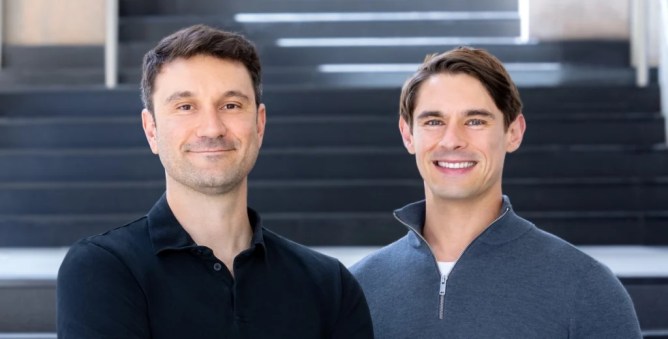Periodic Labs, a new startup founded by Liam Fedus, a respected OpenAI researcher, and his former Google Brain colleague Ekin Dogus Cubuk, emerged from stealth last month with a substantial three hundred million dollar seed round. The round was led by Felicis and included a prominent group of angel investors and other top venture capital firms.
The startup originated from a conversation between Fedus and Cubuk about seven months ago. Cubuk was a leading machine learning and material science researcher at Google Brain. After observing numerous predictions about how generative AI would transform scientific discovery, they concluded the necessary components were finally in place to make this a reality, or at least to found a startup that attempted it.
Cubuk explained that several developments made the timing right. First, robotic arms capable of handling powder synthesis, the process of mixing and creating new materials, had recently proven their reliability. Second, machine learning simulations had become efficient and accurate enough to model the complex physical systems required for developing new materials. Third, large language models now possessed powerful reasoning capabilities, thanks in part to the work of Fedus and his team at OpenAI. Fedus was a key member of the small team that created ChatGPT and led OpenAI’s important post-training team, which refines models after their initial development.
When these pieces were combined, the vision became clear. A simulation could theoretically discover new compounds, a robot could mix the materials, and a large language model could analyze the results and suggest corrections. AI-automated material science was ready to be built.
In fact, Cubuk was a co-author of a groundbreaking 2023 paper that documented a precursor Google research project. That team built a fully automated, robotic-powered lab and created forty-one novel compounds from recipes suggested by language models.
Equally important, the founders realized that even failed experiments would be valuable for their new startup because data is the lifeblood of AI. AI science offered an entirely new source for real-world training and post-training data. The founders believe this could fundamentally change the existing scientific motivation system, which primarily rewards success through paper publications and grants, not exploration.
Fedus stated that making contact with reality and bringing experiments into the AI loop is the next frontier.
After his discussion with Cubuk, Fedus informed the leadership at OpenAI of his resignation and plan. He then tweeted to the world that he was leaving with what appeared to be OpenAI’s blessing and investment. However, that investment did not materialize. OpenAI is not a backer of Periodic Labs. Fedus declined to say why, but they did not need OpenAI’s money. His tweet triggered a frenzy of venture capitalists courting the company.
Fedus described a feeling of being reverse pitched, with one investor even writing a love letter to Periodic Labs. The first call they took was from Peter Deng, a former OpenAI colleague who had become an investor at Felicis. Deng immediately contacted Fedus upon hearing he had left OpenAI.
They met for coffee in San Francisco, and their conversation continued on a walk through the hilly Noe Valley neighborhood. During the walk, Fedus made a statement that Deng said literally stopped him in his tracks. Fedus said that everyone talks about doing science, but to actually do science, you have to do science, meaning AI needed a fully equipped wet lab to test its ideas in a real-world setting.
Deng committed to writing a check on the spot. Fedus recalls it as a huge vote of confidence. However, the company was so early it was not yet incorporated and had no bank account, so the deal could not be signed immediately.
Soon after, with a three hundred million dollar war chest, Cubuk and Fedus hired over two dozen prestigious AI and scientific talents, including Alexandre Passos, Eric Toberer, and Matt Horton. Because the team members are experts in different areas, one of them gives a graduate-level lecture to the others each week to ensure a tight coupling and shared understanding of what they are building.
Periodic Labs has already set up its lab and is working with experimental data, simulations, and testing predictions. The main initial mission is to find new superconductor materials, a discovery that could power the next era of potent, lower-energy technology. The robotic components are not yet fully operational and will take some time to train.
This endeavor is a major ambitious project. Scientific discovery, AI-powered or not, is typically not fast, easy, or predictable. While the expert team has indications they will find what they are looking for, or make other discoveries along the way, there are no guarantees.
Model makers are also moving toward AI science. Last month, an OpenAI vice president announced he was launching a science unit at the company to build an AI-powered platform that accelerates scientific discovery.
As for the investor who wrote the love letter, he did not win the deal, though Fedus found it very flattering. The other seed investors include Andreessen Horowitz, DST, NVentures, Accel, and angel backers like Jeff Bezos, Elad Gil, Eric Schmidt, and Jeff Dean. Elad Gil will be speaking about how AI has changed the startup landscape at an industry event.

